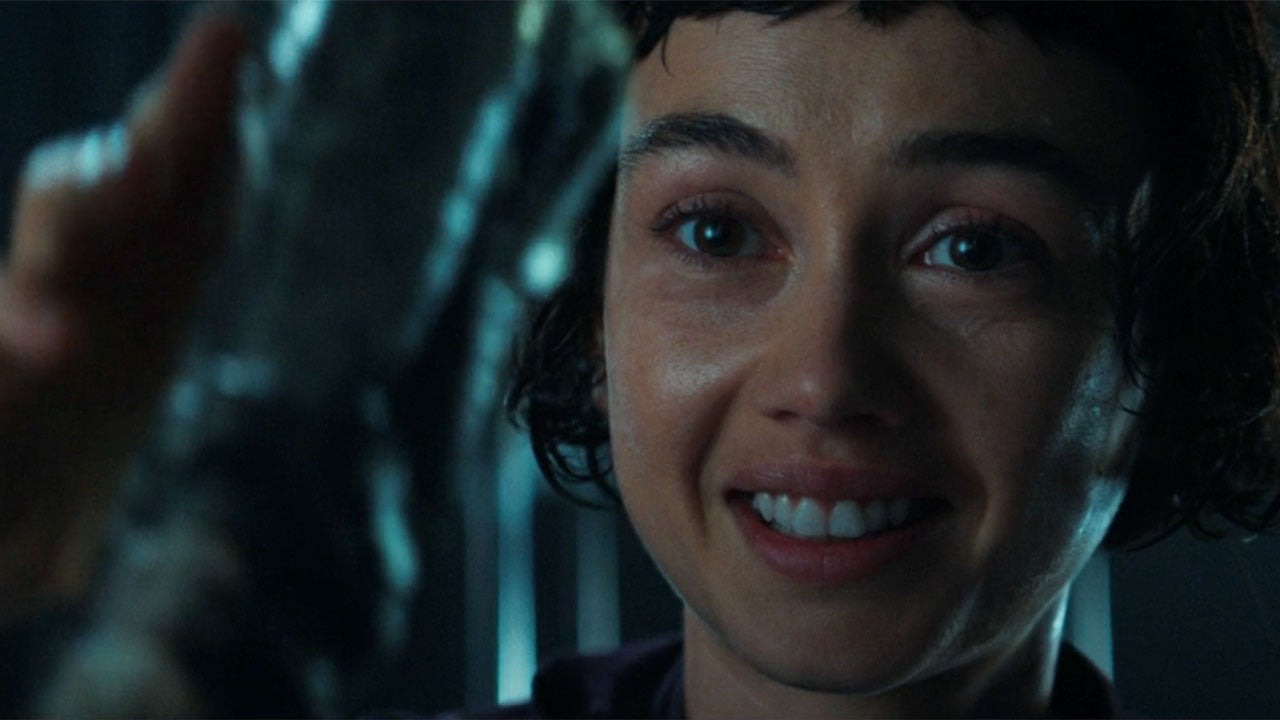Sydney Chandler on ‘Alien: Earth,’ the Prometheus Connection, and ‘Talking’ to Xenomorphs: A Game-Changing Sci-Fi Role
Popular Now
 Toca Boca World
Toca Boca World
 PUBG Mobile
PUBG Mobile
 Poppy Playtime
Poppy Playtime
 EA SPORT FC 25
EA SPORT FC 25
 Stumble Guys
Stumble Guys
 Schedule I
Schedule I
 Geometry Dash
Geometry Dash
 Roblox
Roblox
 Among Us
Among Us
 Minecraft
Minecraft 
FX’s Alien: Earth has reignited the iconic sci-fi horror franchise by grounding the terror on our home planet and, perhaps most controversially, by introducing a character who can communicate with the very species that has hunted humanity for decades. At the heart of this seismic shift is actress Sydney Chandler, who portrays Wendy, a complex ‘hybrid’ prototype whose journey from a childlike synth with a human consciousness to a powerful, weaponized figure has been one of the year’s most compelling arcs.
In recent interviews, Chandler has opened up about the challenges and exhilaration of inhabiting such a transformative role, offering deep insights into Wendy’s mysterious bond with the Xenomorphs and how the new series honors the philosophical groundwork laid by films like Prometheus. The discourse positions Alien: Earth as not just a horror show, but a rich new vein of premium sci-fi streaming content that is rich in SEO-optimized themes like AI morality, hybrid identity, and Xenomorph communication.
 The Complexities of Playing Wendy: A ‘Black and White’ Child with Lethal Power
The Complexities of Playing Wendy: A ‘Black and White’ Child with Lethal Power
Chandler describes Wendy as a character in constant flux, a struggle that was both “scary” and an “amazing challenge” to portray. Her arc is defined by an exploration of identity—a question she is actively trying to answer: “Not what is she, but what does she desire to be?”
- Moral Clarity as a Threat: A key aspect of Wendy is her “black and white” moral compass, a trait Chandler attributes to her childlike nature. While this provides her with a certain strength and uncompromising loyalty to those she deems “good,” it also makes her a danger to the complex, gray world of adults. “When you only live in black and white, you can become merciless and narrow-minded,” Chandler notes, hinting at the ominous power she wields in the finale.
- A Weaponized Body: The actress sees the final episodes as Wendy fully accepting her lethal potential. Having been imprisoned, she emerges empowered, no longer a character who “needs protection or supervision.” Her transition from the persecuted to the one holding the reins is an incredible shift, marking her as a “massive threat to the world” from an objective viewpoint.
- The Sisterly Bond: Central to the emotional core of the show is Wendy’s fractured relationship with her brother, Hermit (Alex Lawther). Chandler emphasized the beauty of exploring a story driven by sibling love in sci-fi, noting that the tension arises because Hermit has fallen into the “gray area” of adult compromise, while Wendy clings to her simplistic, yet dangerous, moral high ground.
 The ‘Talking’ Xenomorphs: Crafting the Game-Changing Language
The ‘Talking’ Xenomorphs: Crafting the Game-Changing Language
The most shocking and widely discussed element of Alien: Earth is Wendy’s ability to not only hear the Xenomorphs but to converse and even control them. Chandler recalled the daunting moment in the script where it simply read: “Wendy opens her mouth and she speaks to aliens.”
- Finding the Melody: Far from an established fictional tongue, the Xenomorph’s “language” was a collaborative effort with the sound design team. Chandler found inspiration in the “insectile chirping, trilling” of cicadas and crickets. She noted, “There’s a melody to the language of insects, which I felt very much coalesces with the sounds of the aliens.” This organic approach avoided simply reusing familiar franchise sounds, giving the Xenomorphs a new, unsettling sonic identity.
- ASMR and Echolocation: The creative team developed three distinct sounds: the Xenomorph’s voice in Wendy’s head (the “Wendy echoes,” often described as an ASMR-like, painful tickle), the language Wendy speaks back, and the Xenomorphs’ own vocalizations. This suggests a communication that may be linked to echolocation, offering a fresh, lore-expanding take on their nature—they are not mindless bioweapons, but creatures with some semblance of society and curiosity.
- A Relationship of Fear and Awe: Chandler firmly stated that the bond is “not a puppy dog coming out of the grass, it’s a lion.” She understands the lethality of the Xenomorph, even as it appears to obey her. This volatile, power-play dynamic—having a “massive monster” as your backup—is what makes Wendy an undeniably fascinating and truly scary character for the franchise.
The Ghost of ‘Prometheus’: Deeper Philosophical Waters
While the interviews do not explicitly detail Chandler’s personal love for Ridley Scott’s 2012 film, the philosophical terrain of Alien: Earth, created by Noah Hawley, undeniably follows the path of exploration and creation set forth by Prometheus and Alien: Covenant.
The series’ deep dive into artificial intelligence morality, the hubris of the Prodigy Corporation’s ‘Engineers’ (Boy Kavalier), and Wendy’s own hybrid nature as a synth infused with a human soul, mirrors the existential questions posed by David the Android. Wendy, like David, is a creation who gains power and moral autonomy, eventually turning the tables on her creators. Some critics have suggested that Wendy’s endgame—”We rule”—positions her less as a new Ripley and more as a new, female David, a synth-as-villain figure destined to reshape the galaxy.
This commitment to exploring existential sci-fi themes, along with the visceral horror elements, ensures that Alien: Earth is not just trading on nostalgia but actively advancing the lore. Chandler’s performance provides the necessary emotional anchor for this complex narrative, making her a crucial figure in the next chapter of one of cinema’s most enduring and profitable horror franchises.










 The Complexities of Playing Wendy: A ‘Black and White’ Child with Lethal Power
The Complexities of Playing Wendy: A ‘Black and White’ Child with Lethal Power The ‘Talking’ Xenomorphs: Crafting the Game-Changing Language
The ‘Talking’ Xenomorphs: Crafting the Game-Changing Language